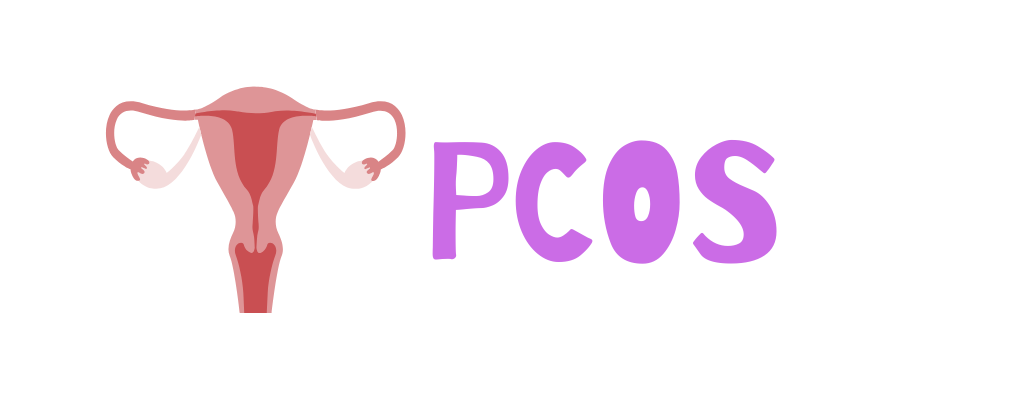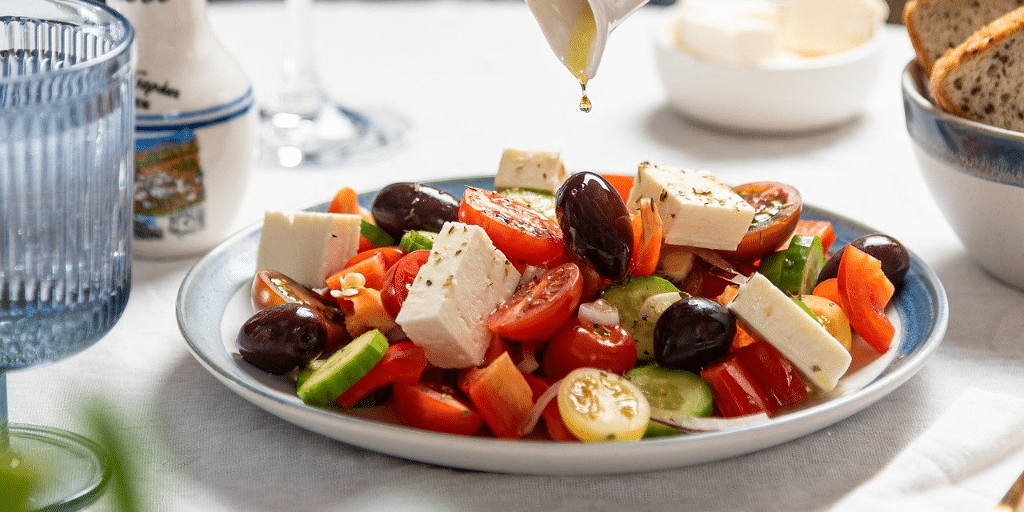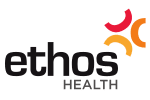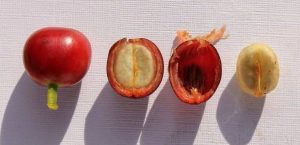PCOS and Nutrition

What is PCOS?
Polycystic ovary syndrome (PCOS) is a condition affecting women’s reproductive hormones, ovaries and the process of ovulation. PCOS is prevalent in 10-15% of women and up to 70% experience insulin resistance. Insulin is the hormone responsible for transporting glucose into our cells for energy. Insulin resistance occurs when the body does not respond appropriately to the effects of insulin. As a result, the body compensates by increasing insulin secretion, which causes the ovaries and adrenal glands to increase male hormone production.
What are the symptoms?
Symptoms of PCOS are different for each person, Some women experience all the PCOS symptoms while other experience only a few. PCOS symptoms include;
- Irregular or missed periods
- Lack of ovulation (release of egg)
- Excess hair or hair loss
- Weight gain
- Excess weight around the waist
- Acne
- Miscarriage (loss of foetus)
Diagnostic criteria include;
- Disrupted menstrual cycle
- Hyperandrogenism (high levels of male hormones)
- Polycystic ovaries
- Note: Ultrasound is not always needed. Discuss further with your GP
How can I manage my PCOS?
There is currently no “one size fits all” treatment for PCOS, however there are different strategies you could implement to see what helps with your symptoms. We are going to explore the current evidence in this blog.

Weight management
The current first-line treatment for PCOS is weight loss of 5-10% of body weight in women who are overweight. Women already at a healthy weight are recommended to maintain their weight.
Carbohydrates
Carbohydrates are commonly criticised in the media for “causing weight gain” or being “full of sugar” when in reality carbohydrates are a major part of a healthy diet. Carbohydrates are our only source of fibre and are also rich in vitamins including B vitamins, known as our energy vitamins. In terms of weight gain, carbohydrates and protein contain the least amount of kilojoules per gram (16 kilojoules) compared to other macronutrients: fat (37 kilojoules), alcohol (29kilojoules).
Carbs are especially important for those with insulin resistance and should not be removed from the diet, but instead quality and quantity should be the focus. See more on eating with insulin resistance here.
- Include carbohydrate foods as ¼ of every meal
- Consume carbohydrate foods evenly throughout the day
- Choose low GI options where possible. (See below examples)
- Choose high-fibre carbohydrate foods (see below)

Protein more important than you think
For someone with PCOS it’s beneficial to include protein at all main meals as well as snacks. Protein helps to keep us fuller for longer and to stabilise blood sugars when consumed with carbohydrates. Animal sources of protein help supply nutrients such as iron, B12 and zinc. Vegetarian sources of protein are also recommended (e.g. tofu, legumes, beans, yoghurt) as they are high in fibre and low in saturated fats.

High fibre (wholegrains, legumes, fruit and veggies)
Fibre is often forgotten or overlooked when we think about overall health. High fibre foods help lower cholesterol and blood glucose levels, as well as keeping us fuller for longer which can assist in weight maintenance. All of these are important in terms of PCOS, as those with PCOS are at higher risk of insulin resistance, diabetes, increased cholesterol and heart disease.
Women should be aiming for at least 25g of fibre per day. Easy ways to increase your fibre content below.

A Mediterranean Diet and PCOS
There are not many “diets” per se that dietitians prescribe, however the Mediterranean Diet (MD) is one loved by many dietitians. This is because it includes all food groups, lots of fruits, vegetables, grains, olive oil and includes a social aspect. MD also combines many of the above strategies and has been recommended in the treatment of PCOS, due to its anti-inflammatory benefits and link to a reduction in bodyweight. Below are the principles of the MD;
- Add vegetables to each meal (100 g leafy greens, 100 g tomatoes, 200g other vegetables/day)
- Choose wholegrain breads and cereals (3–4 slices/day)
- Legume-based meals twice a week (250g per serve)
- High-quality Extra Virgin olive oil as the main fat (2–4 tablespoons a day)
- Oily fish twice a week (150–200g per serve) – include e.g. salmon, mackerel, canned sardines
- Yoghurt and cheese in moderation (i.e. feta cheese) – yoghurt 200 g per day, 30–40 g cheese per day
- Include lean meat in small portions(beef, lamb, pork and chicken) no more than once or twice a week, avoid processed meat
- If you drink alcohol, <1 standard glass of red wine per day, at least two alcohol-free days each week

Supplements with emerging evidence for PCOS
- Supplements are best used as an adjunct to treatment once lifestyle factors have been addressed, speak to a health professional about what supplement might be most suited to you.
- Inositol: Naturally occurs in foods such as beans, fruits, grains and nuts. Inositol influences the action of insulin, which may help improve insulin resistance in women with PCOS and reduces CVD risk.
- Vitamin D: There is emerging evidence in the role of vitamin D in PCOS, IR and infertility. Studies on vitamin D supplementation in women with PCOS have shown improvements in reproductive function, glucose metabolism, and lipid profile by improving reproductive function.
- Cinnamon: A study has shown that cinnamon improves menstrual cycles in women with PCOS (the study used 1.5g of cinnamon per day). Try adding cinnamon to oats, smoothies, baking, chia pudding
- Berberine: Has shown to be effective against insulin resistance and obesity. Researchers believe that berberine could be effective in PCOS treatment.

Medications
Metformin has been used to improve diabetes management for many years and is now used in some women with PCOS. Metformin reduces the amount of glucose produced by the liver and increases the ability of body cells to absorb glucose. It helps increase insulin sensitivity.
If you have concerns about PCOS chat to your GP, or if you have been diagnosed with PCOS and want lifestyle and dietary support book in with one of our Ethos Health Accredited Practising Dietitians.
To stay update in our latest blogs, podcasts recommendations and recipes sign up for our newsletter here.
References
Barrea L, Frias-Toral E, Verde L, et al. PCOS and nutritional approaches: Differences between lean and obese phenotype. Metabol Open. 2021;12:100123. Published 2021 Sep 13. doi:10.1016/j.metop.2021.100123
https://pubmed.ncbi.nlm.nih.gov/24813595/ –
Szczuko, M., Sankowska, P., Zapalowska-Chwyc, M., & Wysokinski, P. (2017). Studies on the quality nutrition in women with polycystic ovary syndrome (PCOS). Roczniki Państwowego Zakładu Higieny, 68(1).
https://www.healthline.com/health/polycystic-ovary-disease#diagnosis
Miranda-Furtado CL, Ramos FK, Kogure GS, Santana-Lemos BA, Ferriani RA, Calado RT, Dos Reis RM. A Nonrandomized Trial of Progressive Resistance Training Intervention in Women With Polycystic Ovary Syndrome and Its Implications in Telomere Content. Reprod Sci. 2016 May;23(5):644-54. doi: 10.1177/1933719115611753. Epub 2015 Nov 18. PMID: 26586671.
Woodward A, Klonizakis M, Broom D. Exercise and Polycystic Ovary Syndrome. Adv Exp Med Biol. 2020;1228:123-136. doi: 10.1007/978-981-15-1792-1_8. PMID: 32342454.
Rondanelli M, Infantino V, Riva A, Petrangolini G, Faliva MA, Peroni G, Naso M, Nichetti M, Spadaccini D, Gasparri C, Perna S. Polycystic ovary syndrome management: a review of the possible amazing role of berberine. Arch Gynecol Obstet. 2020 Jan;301(1):53-60. doi: 10.1007/s00404-020-05450-4. Epub 2020 Feb 14. PMID: 32060683; PMCID: PMC7028834.






